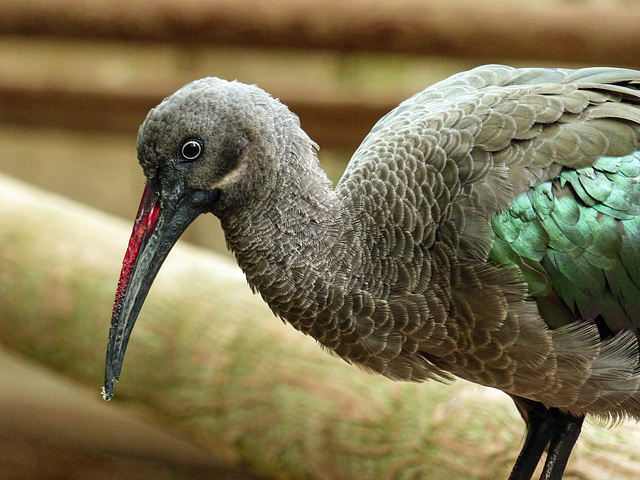Bright and cheery
Why did the Pheasant cross the road?
Home tweet home
Mountain Bluebird
My first sighting of the season
Raindrops on the back of a Canada Goose
Great Gray Owl from 2012
Black-capped Chickadee on Judy's hand
Balsam Poplar male catkins
The Heritage tree at Carburn Park
Sweet equine faces
Eurasian Collared-Dove / Streptopelia decaocto
Clouds, reflected
Rare LEUCISTIC Merlin enjoying a snack
Siberian Squill
Western Meadowlark, a bird with a beautiful song
Munch, munch, munch ....
Comma butterfly - one of my favourites
Black and white lichen
Munching on cone seeds
Balsam Poplar catkins
Least Chipmunk
Showing off his fine feathers
Strange but beautiful
Petunia
Beehive Ginger / Zingiber spectabile
Fine feathers of a female Mallard
Catkins - a sure sign of spring
Ring-necked Pheasant hoping to attract a mate
Hanging on to the old
Camouflaged House Sparrow at cavity
A danger to wildlife
Great Horned Owl, sleeping after a night of huntin…
Aspen catkins
Goldeneye on golden 'pond'
Yesterday's lucky encounter
Balsam Poplar male catkins
Tree Swallow in nest cavity
Hepatica
A quick shot just in time
Another view at William J Bagnall Wildlife Park
A serious pose
A white barn from yesterday
William J. Bagnall Wilderness Park
Colours made for each other
See also...
Keywords
Authorizations, license
-
Visible by: Everyone -
All rights reserved
-
262 visits
Hadada Ibis / Bostrychia hagedash


This photo was taken on 6 October 2015 at the Calgary Zoo. I always find it difficult to get decent photos in this building - it's so hot and humid, with poor light and a camera lens that steams up. I'm not sure, but I think this was the first time I had seen this kind of Ibis at the Zoo.
“Hadada ibises have a wide range across sub-Saharan Africa, south to South Africa. They are Africa's most common and least aquatic ibis. Hadadas live in open grasslands, savannahs and rain forests, especially along wooded streams, marshes and river courses. They are also common around small towns and villages, in pastures and cultivated land and in timbered areas and are occasionally seen in the glades of deep forests. They are carnivores.
In the early 1900s, Hadada Ibis underwent a marked decline in South Africa due to hunting during a period of colonial expansion. Since 1910, it has been expanding toward western Africa, probably as a result of reduced human persecution following legal protection; proliferation of imported tree species, providing new sites for resting and nesting in formerly treeless areas; construction of reservoirs; increase in irrigated land; and arrival of cattle in zones recently colonized by mans, as cow dung favors expansion of coprophagous insects, frequent prey of the species.
The bird's name comes from its raucous call of "ha-ha-a-a-a-a," usually uttered on the wing. Hadadas typically call around dusk or sunrise, when returning to the roost or leaving it. One bird starts, followed by others. In large roosts, several groups may call simultaneously.” From the Oregon Zoo.
www.oregonzoo.org/discover/animals/hadada-ibis
en.wikipedia.org/wiki/Hadada_ibis
“Hadada ibises have a wide range across sub-Saharan Africa, south to South Africa. They are Africa's most common and least aquatic ibis. Hadadas live in open grasslands, savannahs and rain forests, especially along wooded streams, marshes and river courses. They are also common around small towns and villages, in pastures and cultivated land and in timbered areas and are occasionally seen in the glades of deep forests. They are carnivores.
In the early 1900s, Hadada Ibis underwent a marked decline in South Africa due to hunting during a period of colonial expansion. Since 1910, it has been expanding toward western Africa, probably as a result of reduced human persecution following legal protection; proliferation of imported tree species, providing new sites for resting and nesting in formerly treeless areas; construction of reservoirs; increase in irrigated land; and arrival of cattle in zones recently colonized by mans, as cow dung favors expansion of coprophagous insects, frequent prey of the species.
The bird's name comes from its raucous call of "ha-ha-a-a-a-a," usually uttered on the wing. Hadadas typically call around dusk or sunrise, when returning to the roost or leaving it. One bird starts, followed by others. In large roosts, several groups may call simultaneously.” From the Oregon Zoo.
www.oregonzoo.org/discover/animals/hadada-ibis
en.wikipedia.org/wiki/Hadada_ibis
- Keyboard shortcuts:
Jump to top
RSS feed- Latest comments - Subscribe to the comment feeds of this photo
- ipernity © 2007-2024
- Help & Contact
|
Club news
|
About ipernity
|
History |
ipernity Club & Prices |
Guide of good conduct
Donate | Group guidelines | Privacy policy | Terms of use | Statutes | In memoria -
Facebook
Twitter

Sign-in to write a comment.